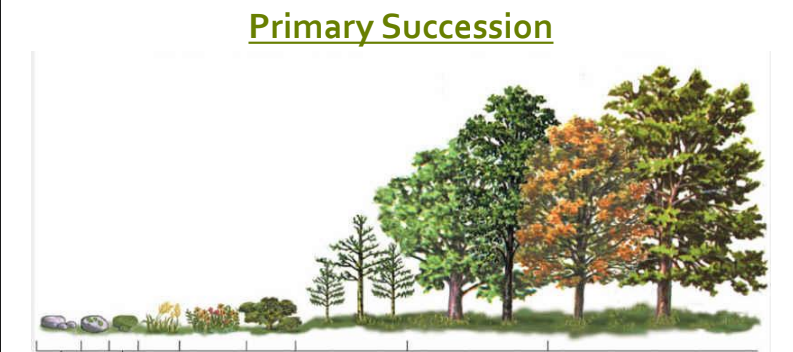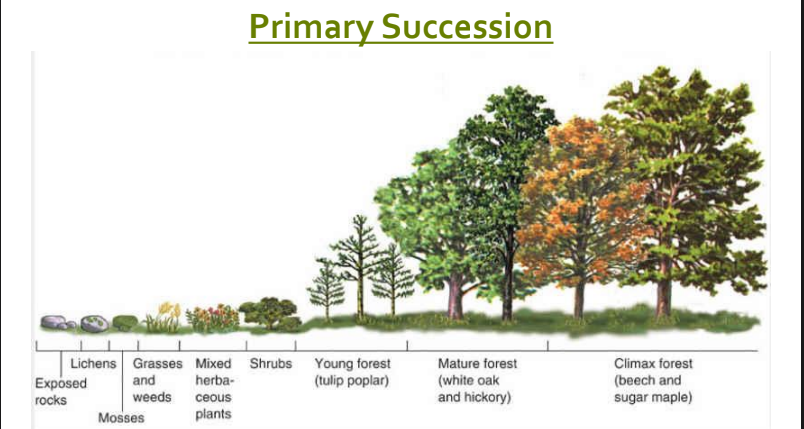Equilibrium and Change (Sec. 3.2 - SNC1W1)
1/8
Name | Mastery | Learn | Test | Matching | Spaced | Call with Kai |
|---|
No analytics yet
Send a link to your students to track their progress
9 Terms
Equilibrium
A state where biotic and abiotic features of an ecosystem remain relatively constant over time and populations are healthy and stable. Biomes have a greater equilibrium than smaller ecosystems.
Ecological Succession
The process of establishing and replacing a community following a disturbance such as a geologic event (e.g. volcanic eruption), a fire, or human activity (e.g. deforestation).
Primary Succession
Succession that occurs on soil or bare rock, where no life previously existed (e.g., following a volcanic eruption).
Secondary Succession
Succession that follows a disturbance that disrupts but does not destroy the community (e.g., regrowth of an area following a forest fire).
Pioneer Species
The first species to colonize an area during ecological succession.
Climax Community
A stable, mature community that undergoes little or no change in species over time.
Aquatic Succession
The process by which a body of water, such as a pond, gradually transitions into a land ecosystem through the accumulation of sediments and decaying organisms.
Shoreline Succession
The succession of plants in a shoreline environment that are adapted to harsh conditions, which eventually leads to development of woodlands

